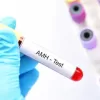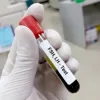
Insight into egg freezing
This article has been contributed by Consultant Embryologist, Alpesh Doshi for IVF London– a fertility clinic based in Elstree, London.
Egg freezing – the process of extracting, freezing and storing a supply of eggs for use in future fertility treatment, is no longer considered an experimental procedure. In fact, it is increasingly seen as a proactive preventative health decision. As one of the the first embryologist to bring the technique of egg freezing to the UK, it is a subject close to our Consultant Embryologist, Alpesh Doshi’s heart. Over the last twenty years he has helped hundreds of women to preserve their chance of starting a family.
We offer egg freezing at IVF London to women for medical reasons (for example because they are undergoing treatment for cancer or they are at risk of early menopause) as well as for social reasons. Egg freezing provides an option for women who choose to delay starting a family or whose circumstances mean they aren’t in a position to try sooner.
It also isn’t only single women taking this proactive step. Our experience shows that increasingly, couples are taking advantage of the chance to have a family or add to their existing family later in their lives.
Research shows that frozen eggs result in successful pregnancies and healthy babies at comparable levels to IVF treatment using fresh eggs. However it is important to recognise that egg freezing offers a chance, but not a guarantee of prolonging the window to start a family. Whilst the women we see at the clinic understand that the measures may not work for them, they feel better knowing that they have done what they can to maximise their chances.
When is it the right time to consider egg freezing?
The answer to this question will vary from woman to woman as personal factors undoubtedly play a large part in an individual or couple’s decision to freeze their eggs. However, in every case, it is advisable to act as early as possible.
The number of eggs that will be retrieved and the quality of these eggs will decline with the age of the woman at time of freezing (most notably after 38 years). Therefore the chances of achieving a successful pregnancy are higher if the woman is younger at the point of egg freezing.
What does the egg freezing process involve?
Similar to the early stages of IVF treatment, patients need to administer a series of medications to stimulate their ovaries and help their bodies to produce eggs.
We offer support every step of the way – monitoring each individual’s progress and reaction to the medication with ultrasounds and blood tests. When the eggs are ready for collection, the patient attends the clinic, normally just for a few hours, going home the same day. We collect the eggs using a thin needle inserted into the ovaries, either under sedation or an anaesthetic.
At IVF London we use the advanced technology of vitrification, a method of ‘flash freezing’ the eggs extremely quickly to prevent damaging ice crystals forming. This typically results in survival rates of over 90% when eggs are later defrosted. When the patient is ready to use the eggs, they are fertilised using ICSI (where one sperm is injected directly into the egg) and one (or in some instances, two) resulting embryos can be transferred back to the mother.
If you would like to know more, please let us help…
As with any fertility issue, we understand the importance of understanding the facts and making the right decision for you. We are always happy to talk and answer any questions you may have. You can call our supportive and expert team on 020 8207 4115.




